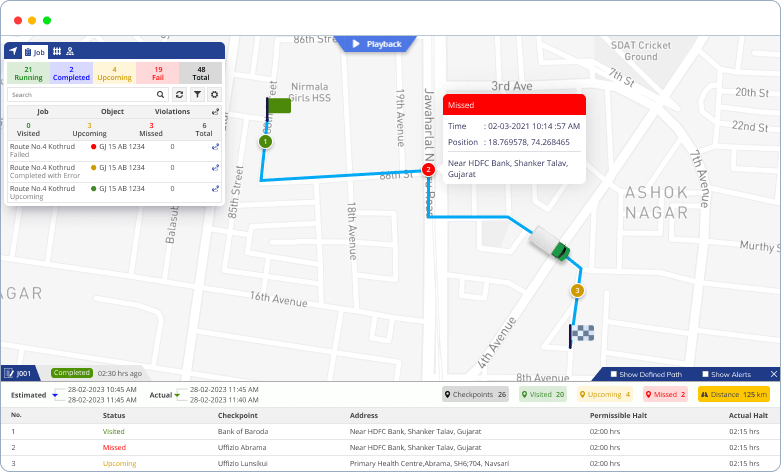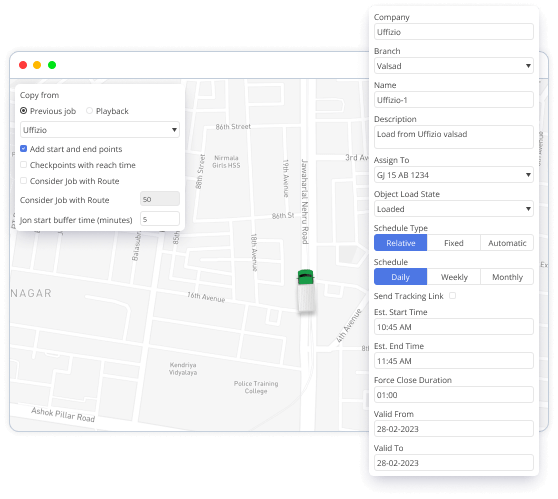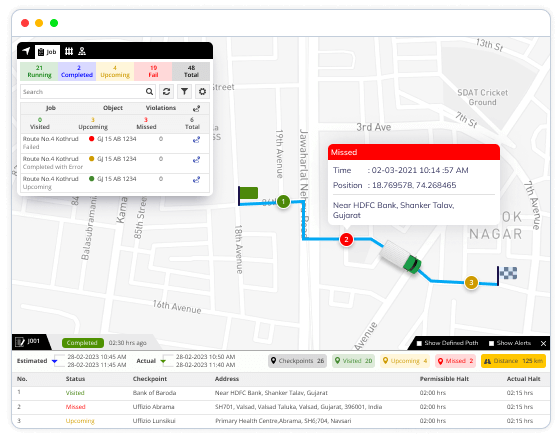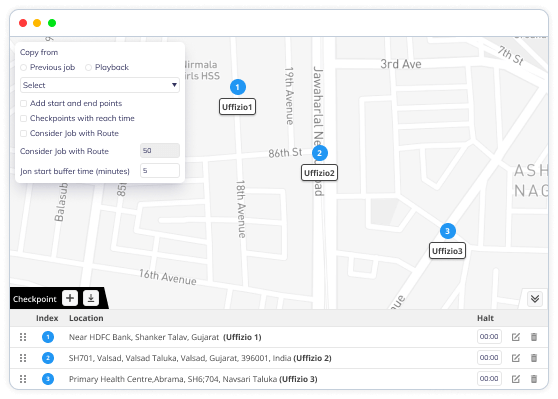Can the entire job be customized as per our requirements?
Yes, Uffizio’s job module can be customized to meet the specific requirements of your business. The software allows for the creation of custom job templates, which can be tailored to your specific needs and requirements.
Using the job template feature, you can define the job details, such as job title, location, description, and also priority. You can also set up custom fields to capture additional information that is relevant to your business.
In addition, the job module allows for the creation of custom job statuses, which can be used to track the progress of each job. You can define your own job status labels, such as “scheduled,” “in progress,” or “completed,” and set up workflows to automatically update job status based on certain triggers, such as when a worker marks a job as complete.
Overall, Uffizio’s job module provides a flexible and customizable solution for managing your field service operations. It furthermore allows you to tailor the software to your specific needs and requirements.
What are the different types of reports you have for the job management?
Uffizio’s job management provides a variety of reports that can help businesses track their field service operations and analyze job performance. Some of the different types of reports available in the job module include:
Job status report: This report provides an overview of all jobs and their current status, including the number of jobs scheduled, in progress, and completed.
Detailed summary report: This report provides details on all jobs completed within a specific time frame, including the worker assigned to the job, the start and end times, and the job status.
Job detail report: This report provides insights into worker performance, including the number of jobs completed, time taken to complete each job, and any delays or issues encountered.
In addition to this we also provide object job summary, driver job summary, job fuel summary, job temperature summary report.
Are there any limitations to the number of checkpoints that can be added to a particular job?
Uffizio’s job module does not have any specific limitations on the number of checkpoints that can be added to a particular job. The software allows businesses to create custom job templates that include as many checkpoints as necessary to complete the job.
Is it possible to know the fuel usage in particular jobs?
Yes, Uffizio’s job module includes a fuel consumption tracking feature that allows businesses to track fuel usage for each job. This feature can be useful for businesses that need to monitor fuel consumption and costs for their field service operations.
Using the fuel consumption tracking feature, businesses can track fuel usage for each job based on factors such as the distance traveled, the type of vehicle used, and the job duration. The software provides detailed reports on fuel consumption, including the amount of fuel used, the cost of fuel, and the fuel economy for each job.
What does "Object Load State" mean in a particular job?
Object Load State refers to the load status of the vehicle that is associated with a particular job. This feature allows businesses to track the location and status of the vehicle as it moves through various stages of the job.
For example, if a job involves transporting goods or equipment from one location to another using a vehicle, the “Object Load State” feature can be used to track the vehicle as it moves through different stages of the job, such as loading, transit, and unloading. This can help businesses ensure that the vehicle is being used efficiently and safely, and can also provide visibility into the status of the job for both the business and the customer.







